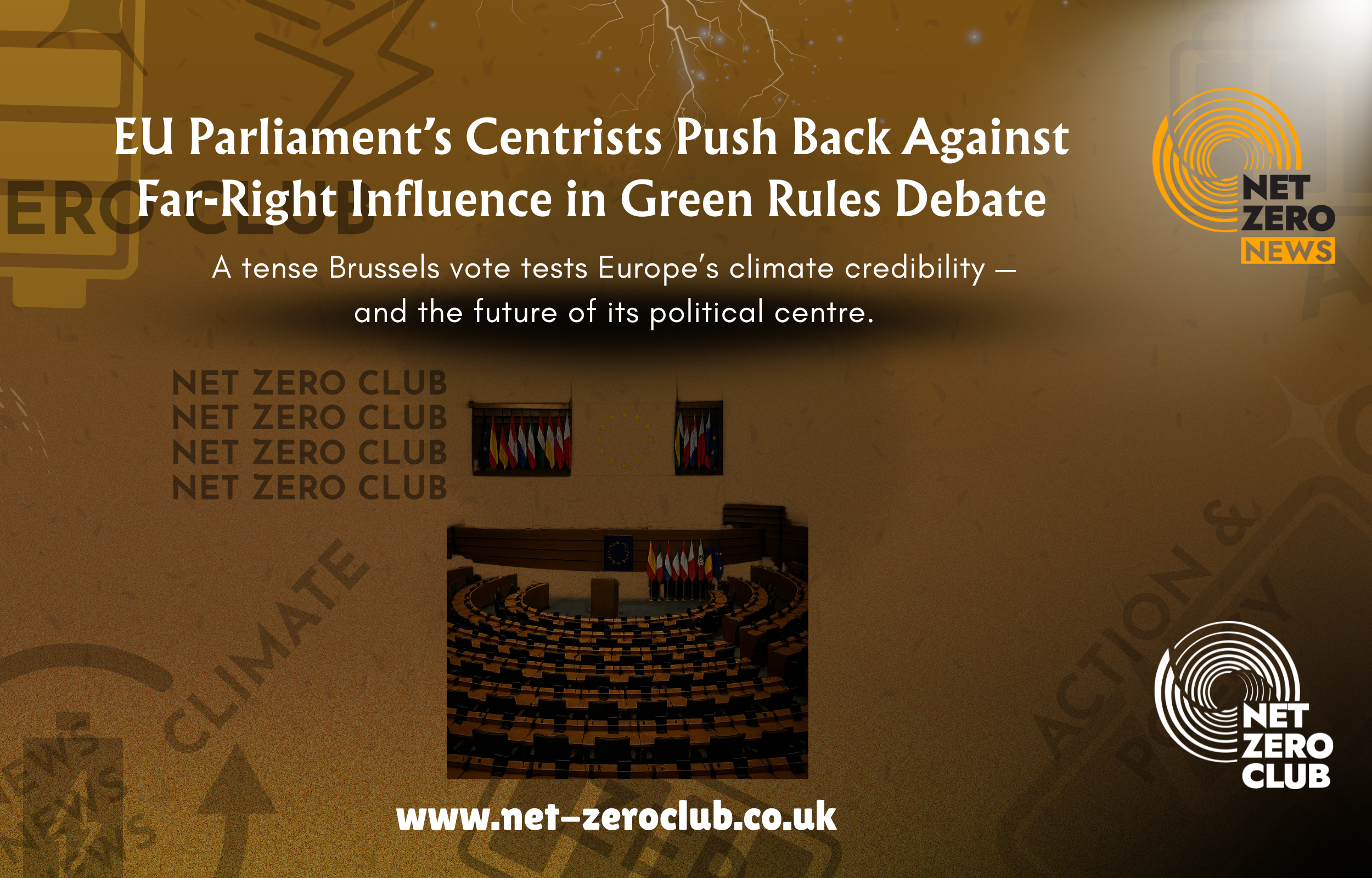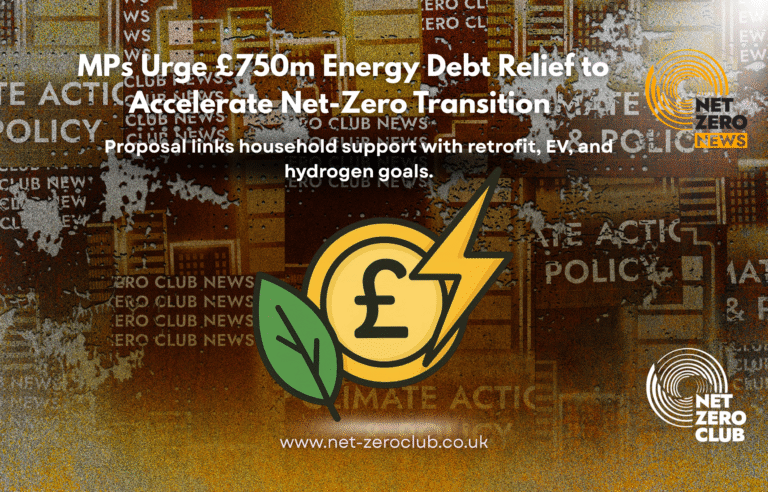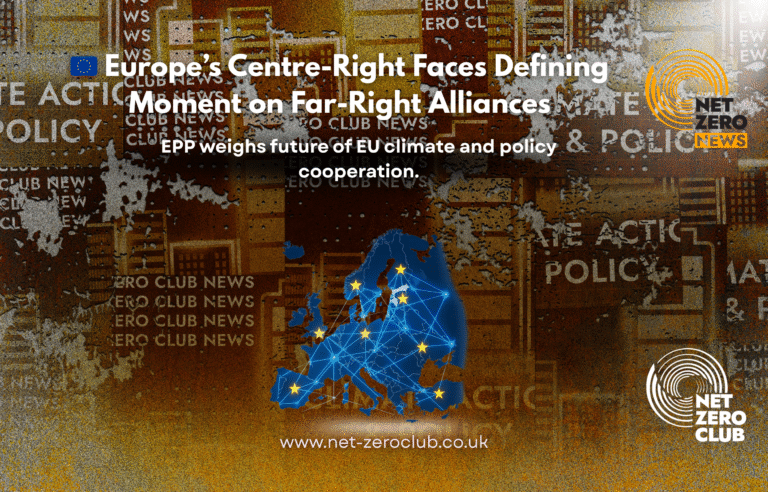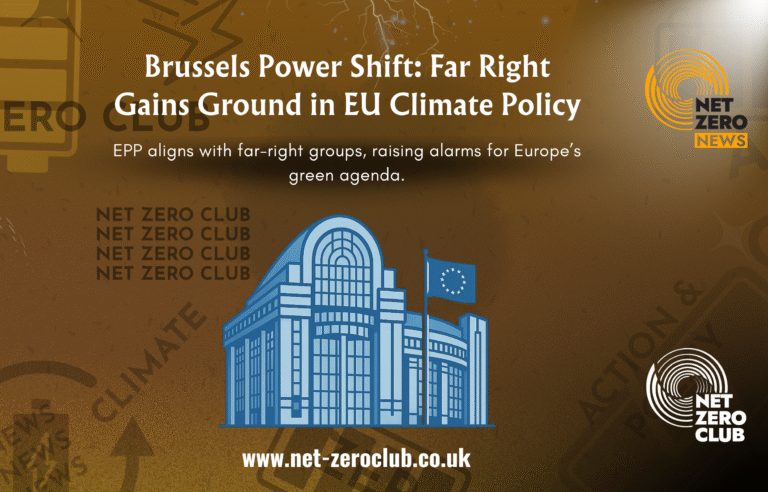EU Parliament’s Centrists Aim to Exclude Far Right from Green Rules

Welcome, Net Zero News readers,
The European Parliament is currently at a pivotal moment in its legislative journey, one that may significantly impact the future of business regulations across the continent. As the debate heats up, the centrist coalition finds itself in a delicate balancing act, trying to navigate a path that avoids giving the far-right an edge while still pushing forward crucial green regulations.
Centrist Coalition Under Pressure
The European Parliament, a hub of democratic dialogue and decision-making, is gearing up for a crucial vote this week on a comprehensive simplification package aimed at reducing bureaucratic hurdles for businesses. At the heart of this debate is the European People’s Party (EPP), the largest political group in the Parliament, which is grappling with conflicting strategies to ensure the passage of this important legislation.
In a strategic twist, the EPP has outlined two potential plans to secure a favourable outcome. The first, dubbed “Plan A,” involves collaborating with traditional allies, including the Socialists and Democrats, the Greens, and the liberal Renew party. The second option, “Plan B,” would see the EPP align with far-right parties, a move that seemed inconceivable just a few years ago. This dual approach reflects the EPP’s recognition of the shifting political landscape and the growing influence of far-right factions within the Parliament.
As the date of the vote approaches, the EPP appears to be leaning towards Plan B but is also showing signs of a renewed willingness to engage with its traditional partners. This oscillation highlights the complexities of coalition politics in an era where ideological lines are increasingly blurred.
The Omnibus Package: A Crucial Vote
The upcoming vote will revisit a landmark proposal that aims to simplify the regulatory framework for businesses, commonly referred to as the omnibus package. This legislation, introduced by the European Commission in February, is designed to alleviate the reporting obligations on companies, particularly in the realm of sustainability. The significance of this vote cannot be overstated; it represents a critical step in the EU’s efforts to streamline business operations while simultaneously addressing environmental commitments.
Interestingly, the Parliament had previously stalled on this issue in October, surprising many observers who expected a consensus among centrist groups. The deadlock arose after a secret vote revealed dissent within the Socialist bloc, leading to a breakdown in negotiations. This setback has now prompted a renewed urgency among centrist factions to reach an agreement before the forthcoming plenary session.
Negotiations and Compromises
As the different factions within the Parliament convene to discuss the next steps, the EPP is actively working to galvanise support for its version of the simplification package. The party has put forth amendments that it believes will resonate with right-wing and far-right groups, potentially ensuring the necessary votes for passage. However, this strategy has drawn criticism from some quarters, particularly within the centre-left, which has accused the EPP of abandoning its principles in favour of expediency.
“Until the voting is done, a compromise is always reachable,” remarked German MEP René Repasi, the lead negotiator for the Socialists. His comments underscore the ongoing negotiation dynamics, which remain fluid as parties strive to find common ground. “We have until Wednesday to find a pro-European solution,” added Green MEP Kira Marie Peter-Hansen, urging the EPP to prioritise collaboration over alliances with the extreme right.
The Stakes of the Vote
Despite ongoing negotiations, there remain significant uncertainties surrounding the outcome of the vote. Even if centrist leaders manage to come to an agreement, there is no guarantee that all members will fall into line behind the party’s position. Individual lawmakers possess the ability to vote against the party line if they perceive the deal as too lenient or too harsh, as was the case in the previous vote. This internal dissent has the potential to derail even the most well-laid plans.
On the other hand, discussions among the Socialists, Renew, and Greens have yielded a proposed compromise that aims to reduce obligations for climate transition plans while expanding the number of companies covered by the legislation. However, the EPP’s initial response to this proposal has been lukewarm, instead opting to push amendments that align closely with the far-right agenda.
Far-Right Influence and the Future
The spectre of the far-right looms large over these negotiations. The Patriots for Europe group, which represents a coalition of far-right parties, has expressed interest in supporting the bill alongside the EPP. This collaboration would signify a fundamental shift in the traditional political dynamics of the Parliament, effectively dismantling the barriers that have historically separated centrist parties from their far-right counterparts.
Pascale Piera, the lead negotiator for the Patriots for Europe, has been vocal about the EPP’s apparent shift towards far-right positions. “What [the EPP] put on the table is actually our amendments,” she stated, indicating a growing convergence in policy priorities between the centre-right and far-right factions. This development raises critical questions about the EPP’s commitment to its foundational values and the potential ramifications for its electoral base.
Conclusion: A Defining Moment for the EU
As the European Parliament prepares for this pivotal vote, the stakes have never been higher. The outcome will not only shape the regulatory landscape for businesses across Europe but also determine the future of political alliances within the Parliament. The EPP’s navigational choices in this context will be closely scrutinised by both its supporters and critics alike.
In a landscape marked by increasing polarization, the ability of centrist parties to forge meaningful compromises while resisting the allure of far-right alliances will be crucial. The coming days will reveal whether the European Parliament can unite around a vision for sustainable business practices that balances economic competitiveness with environmental responsibility. The eyes of Europe are on Brussels, waiting to see if a pro-European consensus can emerge from these turbulent waters.
Stay tuned to the Net Zero News Network for updates on this unfolding story and its implications for sustainability and business in the European Union.

 Got net-zero news, project updates, or product launches to share?
Got net-zero news, project updates, or product launches to share? 



